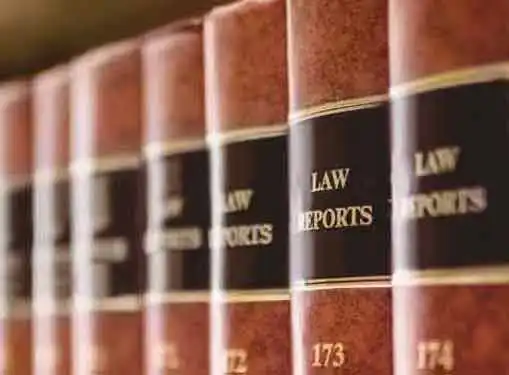Intellectual Property Advice
Patent Infringement and Litigation
The newspapers are full of patent infringement lawsuits these days. We've written a useful primer on patent infringement and litigation.
It's no surprise why patent infringement and litigation are hot topics these days.

For starters, the stakes couldn't be higher. A single case of infringement is capable of tanking the economic fortunes of a company or product line. As an inventor-entrepreneur, you can't afford to be ignorant about your rights and how to defend them.
What is patent infringement?
Patent infringement is the manufacture, use, or sale of a patented technology without the permission of the patent owner. To qualify as infringement, the infringer's product is required to fall within one of the patent's claims. Although the interpretation of infringement varies by international jurisdiction, infringement in the U.S. is generally limited to instances in which an action corresponds to all items of the claim, meaning that even the slightest variation can be legal.
On what basis can patents be vulnerable to infringement?
Parties who have been accused of infringement defend their actions on a variety of levels. A common tactic is to present information that was not available at the time the patent was originally granted. Based on this information, the infringer tries to make the case that they have incorporated technology that is more advanced than the original patent.
Another common approach is for infringers to attempt to invalidate the patent, and sometimes to even attempt to patent the idea themselves. If the infringer is able to prove a defect in the original patent, then infringement quickly becomes a non-issue. Similarly, if it can be proved that the original patent was unenforceable because it was not specific enough, the infringer cannot be held responsible for unauthorized use of the idea or process.
Other popular defenses against infringement include arguments that infringement has not occurred or that the patent holder has actually infringed on a patent held by the accused party. As ridiculous as many of these claims may sound, even frivolous defenses can tie a patent holder up in court for months, or even years.
What are the legal remedies for patent infringement?
The prerequisite for legal action is an approved patent. If an act of infringement occurs before that time, the applicant must wait until the patent has been approved to initiate the legal process. Once the legal process has begun, the patent holder must prove three things to justify his infringement claim. First, he must prove that the action in question occurred after the patent application had been submitted. Second, he must prove that the claims submitted in the application were the same claims contained in the approved patent. Finally, he must prove that the infringing party had actual notice of the pending patent application.
If the courts decide that infringement has occurred, the patent holder is entitled to the larger of reasonable royalties or lost profit as a result of the infringing action. If the infringement is deemed to have been done with willful intent, the patent holder may also be entitled to punitive damage up to three times the amount of actual damages plus legal fees.
Share this article
Additional Resources for Entrepreneurs




Conversation Board
Provide your own thoughts on patent infringement and litigation by commenting below.